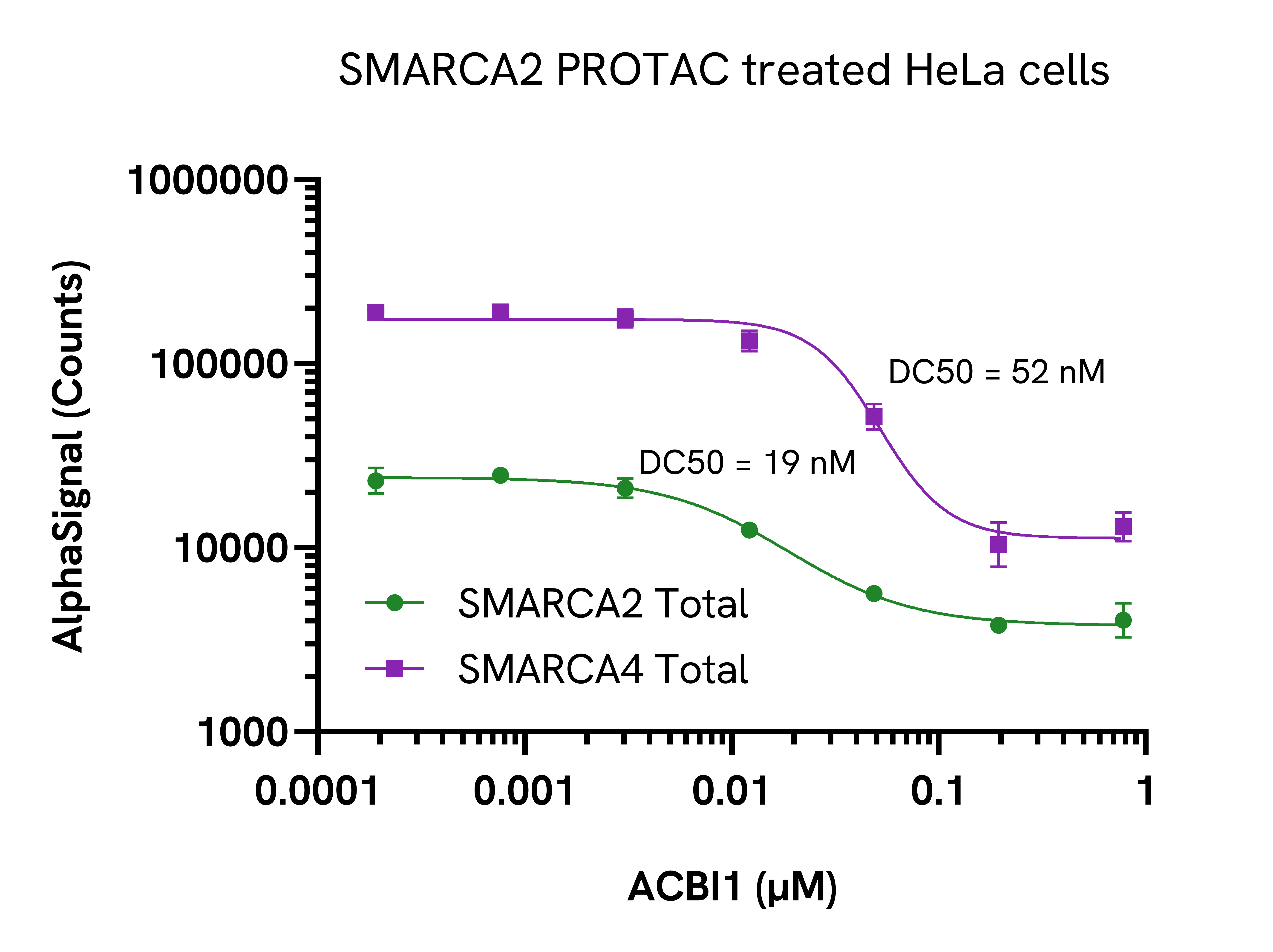

AlphaLISA SureFire Ultra Human Total SMARCA2 Detection Kit, 10,000 Assay Points
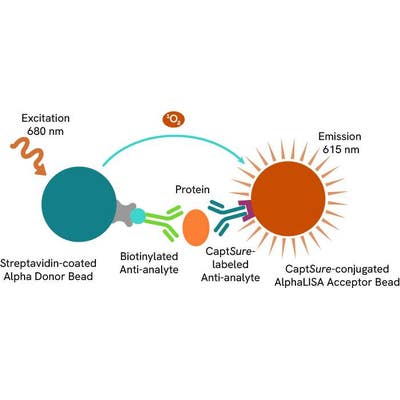
AlphaLISA SureFire Ultra Human Total SMARCA2 Detection Kit, 10,000 Assay Points
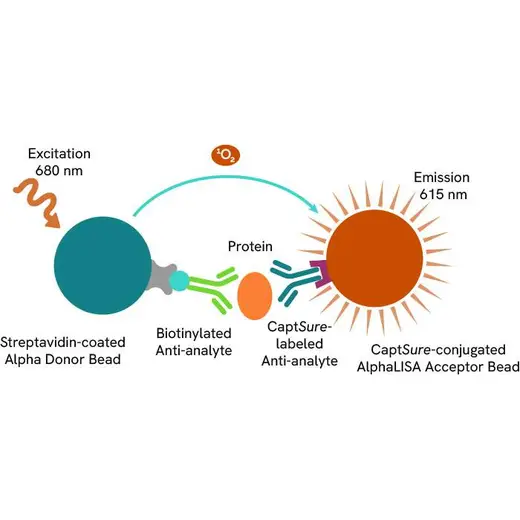

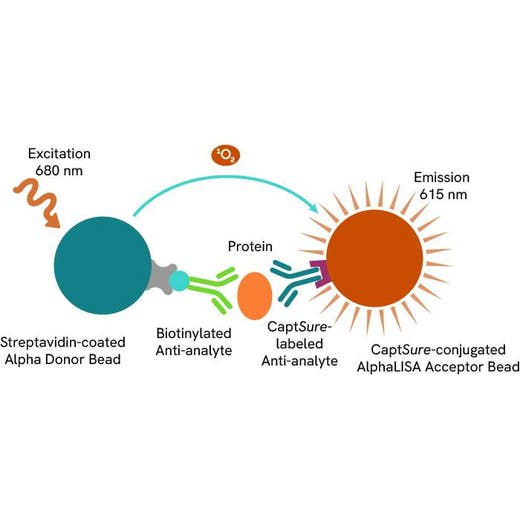

The AlphaLISA™ SureFire® Ultra™ Human Total SMARCA2 assay is a sandwich immunoassay for quantitative detection of total SMARCA2 in cellular lysates using Alpha technology.
| Feature | Specification |
|---|---|
| Application | Cell Signaling |
| Sample Volume | 10 µL |
The AlphaLISA™ SureFire® Ultra™ Human Total SMARCA2 assay is a sandwich immunoassay for quantitative detection of total SMARCA2 in cellular lysates using Alpha technology.


AlphaLISA SureFire Ultra Human Total SMARCA2 Detection Kit, 10,000 Assay Points


AlphaLISA SureFire Ultra Human Total SMARCA2 Detection Kit, 10,000 Assay Points


Product information
Overview
SMARCA2 (Probable global transcription activator SNF2L2), a member of the SWI/SNF family, plays a crucial role in chromatin remodeling and DNA damage repair. It serves as an ATPase subunit within the SWI/SNF complex, which regulates genes involved in DNA replication and cell proliferation. Notably, SMARCA2 and SMARCA4 are well-established in SMARCA4-deficient cancers, where SMARCA2 inactivation leads to tumor cell death. Considering its potential, SMARCA2 could be targeted for protein degradation therapeutics in cancer treatment.
The AlphaLISA SureFire Ultra Human Total SMARCA2 Detection Kit is a sandwich immunoassay for the quantitative detection of total SMARCA2 in cellular lysates, using Alpha technology.
Formats:
- The HV (high volume) kit contains reagents to run 100 wells in 96-well format, using a 60 μL reaction volume.
- The 500-point kit contains enough reagents to run 500 wells in 384-well format, using a 20 μL reaction volume.
- The 10,000-point kit contains enough reagents to run 10,000 wells in 384-well format, using a 20 μL reaction volume.
- The 50,000-point kit contains enough reagents to run 50,000 wells in 384-well format, using a 20 μL reaction volume.
AlphaLISA SureFire Ultra kits are compatible with:
- Cell and tissue lysates
- Antibody modulators
- Biotherapeutic antibodies
Alpha SureFire kits can be used for:
- Cellular kinase assays
- Receptor activation studies
- High-throughput drug screening
Specifications
| Application |
Cell Signaling
|
|---|---|
| Automation Compatible |
Yes
|
| Brand |
AlphaLISA SureFire Ultra
|
| Detection Modality |
Alpha
|
| Host Species |
Human
|
| Lysis Buffer Compatibility |
Lysis Buffer
|
| Molecular Modification |
Total
|
| Product Group |
Kit
|
| Sample Volume |
10 µL
|
| Shipping Conditions |
Shipped in Blue Ice
|
| Target |
SMARCA2
|
| Target Class |
Phosphoproteins
|
| Target Species |
Human
|
| Technology |
Alpha
|
| Therapeutic Area |
Neuroscience
Oncology
|
| Unit Size |
10,000 Assay Points
|
Assay validation
PROTAC induced SMARCA2 degradation
HeLa cells were seeded in a 96-well plate (40,000 cells/well) in complete medium, and incubated overnight at 37°C, 5% CO2. The cells were treated with ACBI1 at the indicated concentrations for 4 hours.
After treatment, the cells were lysed with 100µL of Lysis Buffer for 10 minutes at RT with shaking at 350 rpm. SMARCA2 and SMARCA4 Total levels were evaluated using respective AlphaLISA SureFire Ultra assays. For the detection step, 10 µL of cell lysate(approximately 4,000 cells) was transferred into a 384-well white OptiPlate, followed by 5µL of Acceptor mix and incubated for 1 hour at RT. Finally, 5 µL of Donor mix was then added to each well and incubated for 1 hour at RT in the dark. The plate was read on an Envision Nexus™ using standard AlphaLISA settings.
As expected, ACBI1 induced a dose-dependent decrease in both SMARCA2 and SMARCA4 levels.

Assay specificity/selectivity
Selectivity of SMARCA2 Total assay
Total SMARCA2 protein levels were assessed in HeLa cells (WT) and SMARCA2 knockout (KO) HeLa cells. SMARCA2 KO cells (Abcam ab265416) and WT-HeLa cells were seeded in a 96-well plate in complete medium, and incubated overnight at 37°C, 5% CO2. After treatment, the cells were lysed with 100 µL of lysis buffer for 10 minutes at RT with shaking (350 rpm). SMARCA2 Total levels were then evaluated by AlphaLISA SureFire Ultra. For the detection step, 10 µL of cell lysate was transferred into a 384-well white OptiPlate, followed by 5 µL of Acceptor mix and incubated for 1 hour at RT. Finally, 5 µL of Donor mix was then added to each well and incubated for 1 hour at RT in the dark. The plate was read on an Envision Nexus using standard AlphaLISA settings.As expected, SMARCA2 was detected in the WT-Hela cells but not in the SMARCA2-KO cell line.
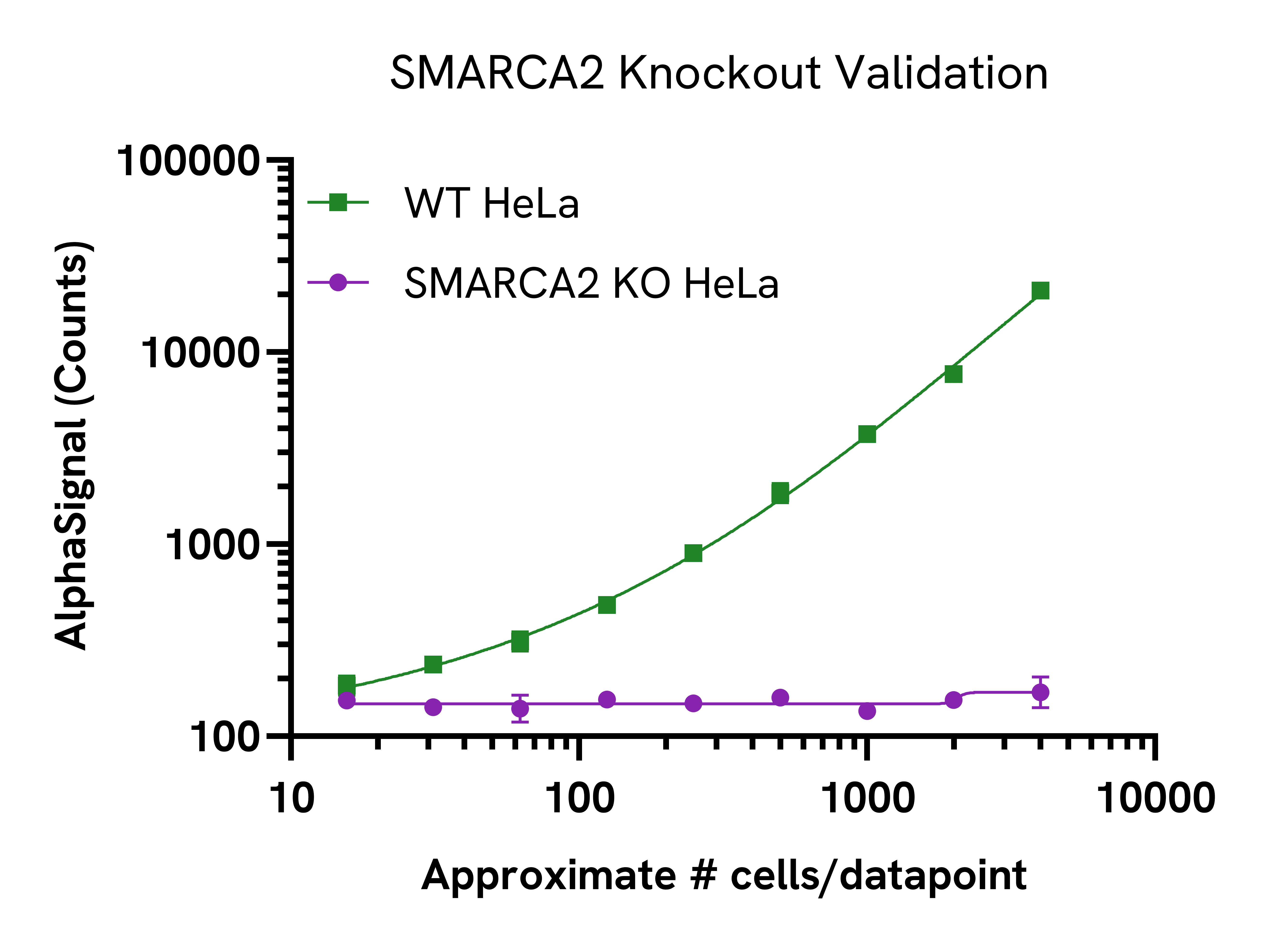
Total SMARCA2 expression levels were assessed in parallel with Total SMARCA4 in a panel of relevant cell lines. Lyophilized cell lysates from various cell lines were resuspended and then diluted in Lysis Buffer to ensure that detection was within the dynamic range of the kits (data not shown). SMARCA2 and SMARCA4 Total levels were evaluated using respective AlphaLISA SureFire Ultra assays. For the detection step, 10 µL of cell lysate was transferred into a 384- well white OptiPlate, followed by 5 µL of Acceptor mix and incubated for 1 hour at room temperature. Finally, 5 µL of Donor mix was then added to each well and incubated for 1 hour at RT in the dark. The plate was read on an Envision Nexus using standard AlphaLISA settings.
As expected, SMARCA2 and SMARCA4 expression is dependent upon cell type. SMARCA2 is expressed in THP1 and A549 cells, whilst SMARCA4 is undetectable. Conversely, SMARCA4 is expressed in Caco2 cells where SMARCA2 is undetectable. These results demonstrate the selectivity of the SMARCA2 assay over SMARCA4, despite these 2 proteins sharing more than 70% sequence identity.
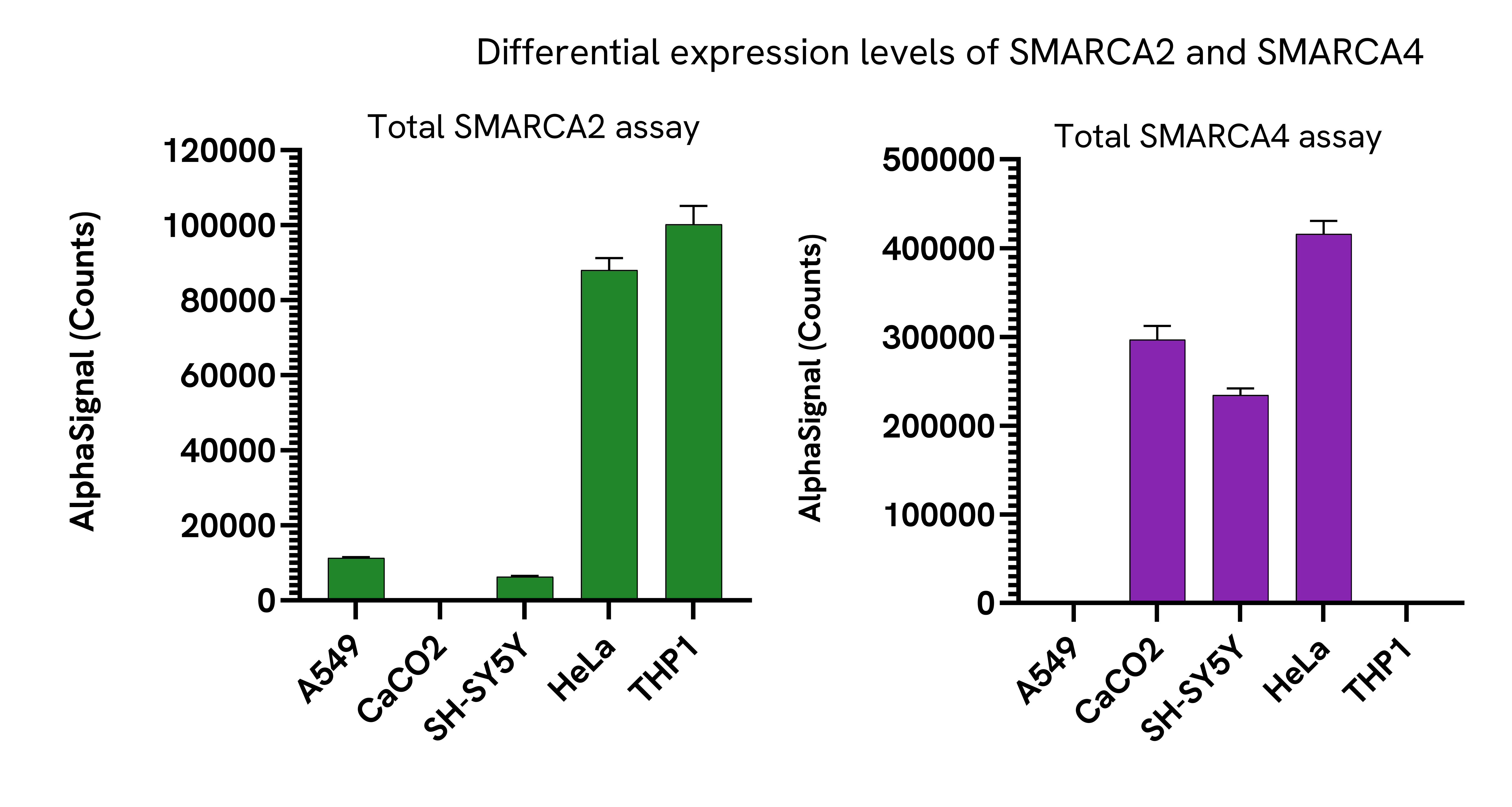
Selectivity of the Total SMARCA2 assay for SMARCA4 protein was assessed by assaying recombinant SMARCA4 protein. Dilutions of recombinant SMARCA4 protein (ab82237) were prepared in Lysis Buffer. SMARCA2 and SMARCA4 Total levels were evaluated using respective AlphaLISA SureFire Ultra assays. For the detection step, 10 µL of protein was transferred into a 384-well white OptiPlate, followed by 5 µL of Acceptor mix and incubated for 1 hour at room temperature. Finally, 5 µL of Donor mix was then added to each well and incubated for 1 hour at RT in the dark. The plate was read on an Envision Nexus using standard AlphaLISA settings.
As expected, the Total SMARCA2 signal was equivalent to the non-specific signal (dotted line). These results demonstrate the selectivity of the SMARCA2 assay over SMARCA4, despite these 2 proteins sharing more than 70% sequence identity.
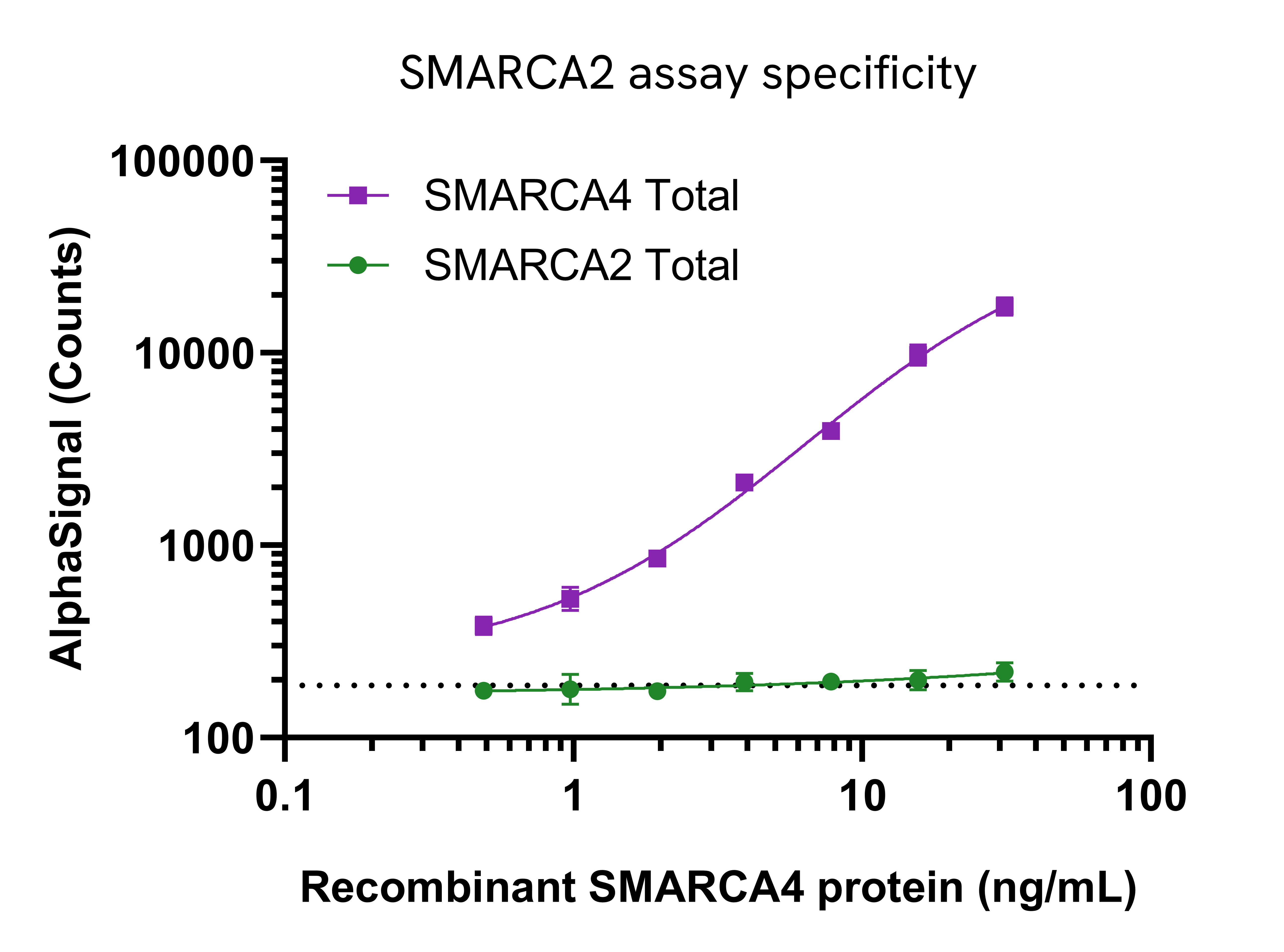
Resources
Are you looking for resources, click on the resource type to explore further.
The definitive guide for setting up a successful AlphaLISA SureFire Ultra assay
Several biological processes are regulated by...
Discover Alpha SureFire® Ultra™ assays, the no-wash cellular kinase assays leveraging Revvity's exclusive bead-based technology...
This document includes detailed tables listing HTRF™, AlphaLISA™ SureFire® Ultra™, and Alpha SureFire® Ultra™ Multiplex assays...


How can we help you?
We are here to answer your questions.






























